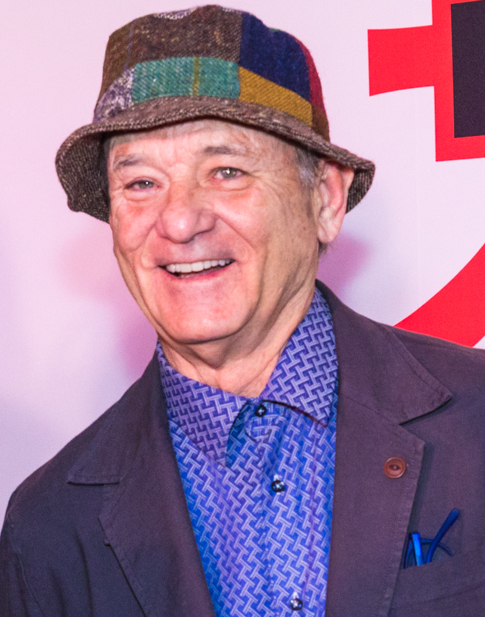Last Updated on April 7, 2025 by Royce Pierpont
William James Murray, better known simply as Bill Murray, is more than just an actor; he’s a cultural icon. His deadpan delivery, improvisational genius, and a certain air of charming irreverence have captivated audiences for decades. But behind the laughter lies a complex individual, shaped by family, tragedy, and a relentless pursuit of comedic truth. This is the story of Bill Murray, from his humble beginnings to his iconic status, a journey marked by both personal struggles and unparalleled success.
A Catholic Upbringing and the Seeds of Rebellion:
Born on September 21, 1950, in Evanston, Illinois, William James Murray was one of nine children in a devout Irish Catholic family. His father, Edward Murray II, was a lumber salesman, and his mother, Lucille, was a homemaker who managed the bustling Murray household. The atmosphere was lively, competitive, and steeped in the traditions of their faith. While the Murrays weren’t wealthy, they fostered a strong sense of community and emphasized the importance of hard work.
Young Bill wasn’t a stellar student. He readily admits to being more interested in cutting up in class than excelling academically. His rebellious streak emerged early, a playful defiance that would later become a hallmark of his comedic persona. He found solace and a sense of belonging within his close-knit family, particularly with his older brother, Brian Doyle-Murray, who would later become a successful comedic actor himself.
During his teenage years, Murray worked as a golf caddy to help support the family. This experience proved surprisingly formative, providing him with a unique perspective on human nature and inspiring the iconic film Caddyshack years later. He honed his observational skills, absorbing the personalities and quirks of the wealthy club members he served. It was here, amidst the manicured greens and privileged clientele, that the seeds of his satirical wit were sown.
Tragedy and a Turning Point:
The carefree rhythm of Murray’s youth was shattered by tragedy. When he was just 17 years old, his father died of complications from diabetes. This devastating loss profoundly impacted him. The weight of responsibility fell heavily on his young shoulders, forcing him to confront the realities of life and the fragility of happiness.
The loss of his father served as a turning point. Murray drifted, unsure of his path. He enrolled at Regis University, but quickly became disillusioned with academic life. A marijuana possession charge during this period further derailed his plans. Facing expulsion, he dropped out of college and returned home, uncertain of his future.
Inspiration from Brother Brian and the Second City Stage:
While grappling with grief and uncertainty, Murray found inspiration in his older brother, Brian. Brian had already begun to pursue a career in comedy, joining the renowned Second City improv troupe in Chicago. Intrigued by the possibilities of improvisational comedy, Bill followed in his brother’s footsteps.
He joined Second City and immersed himself in the world of sketch comedy and improvisation. The experience was transformative. He discovered his natural talent for comedic timing, character development, and quick-witted banter. Under the guidance of seasoned improvisers, he honed his skills and developed his unique comedic style. It was on the Second City stage that Bill Murray truly found his voice.
Saturday Night Live and Stardom:
Murray’s talent didn’t go unnoticed. In 1975, he was invited to join the cast of Saturday Night Live (SNL), replacing Chevy Chase. This was his big break. SNL provided him with a national platform to showcase his comedic brilliance.
He quickly became a breakout star, captivating audiences with his offbeat characters, improvisational skills, and fearless commitment to comedy. Memorable characters like Todd DiLaMuca, the nerdy news anchor, and his sardonic impersonations of celebrities cemented his place as a comedy icon. Alongside fellow cast members like Dan Aykroyd, Gilda Radner, and John Belushi, Murray helped shape the irreverent and groundbreaking humor of SNL’s golden era.
Hollywood and Enduring Success:
The success of SNL launched Murray into a successful film career. He starred in a string of comedy classics, including Meatballs (1979), Caddyshack (1980), Stripes (1981), Tootsie (1982), Ghostbusters (1984), and Groundhog Day (1993). These films showcased his versatility as a comedic actor, moving effortlessly between slapstick humor and subtle, nuanced performances.
Murray’s unconventional approach to his career became legendary. He famously avoided agents and managers, preferring to handle his own affairs. He was known for his impromptu appearances at parties and events, often delighting unsuspecting fans with his playful antics and witty remarks. This unpredictable and enigmatic persona only added to his mystique.
Beyond Comedy: Dramatic Turns and Critical Acclaim:
While celebrated for his comedic roles, Murray also demonstrated his range as an actor in dramatic films. His performance in Lost in Translation (2003), directed by Sofia Coppola, earned him an Academy Award nomination for Best Actor. He followed this with acclaimed roles in films like Broken Flowers (2005), Rushmore (1998), and St. Vincent (2014), solidifying his reputation as a versatile and respected actor.
Personal Struggles and Redemption:
Despite his professional success, Murray has faced personal challenges. His first marriage to Margaret Kelly ended in divorce in 1996. He later married Jennifer Butler, but that marriage also ended in divorce in 2008. These personal struggles undoubtedly contributed to the complexities of his personality and informed his performances with a deeper emotional resonance.
In recent years, Murray has embraced a more introspective and reflective approach to his work. He has collaborated with independent filmmakers and taken on roles that explore themes of loss, redemption, and the search for meaning. He continues to surprise and delight audiences with his unpredictable choices and his unwavering commitment to his craft.
Legacy and Influence:
Bill Murray’s impact on comedy and popular culture is undeniable. He has inspired generations of comedians and actors with his improvisational brilliance, his deadpan delivery, and his unwavering commitment to authenticity. His films continue to resonate with audiences of all ages, offering a timeless blend of humor, heart, and social commentary.
Bill Murray is more than just a comedian; he’s a cultural icon, a singular talent whose journey from caddyshack to center stage is a testament to the power of perseverance, creativity, and the enduring appeal of a truly original voice. His life story serves as an inspiration to aspiring artists and anyone who dares to defy expectations and pursue their own unique path. He reminds us that laughter can be a powerful tool for healing, connection, and understanding, and that even in the face of adversity, there is always room for a little bit of Bill Murray’s brand of charming irreverence.









